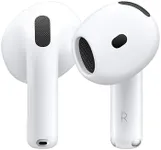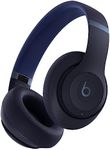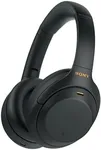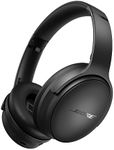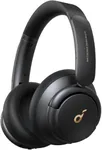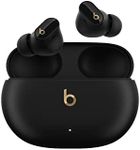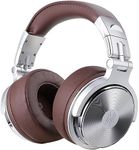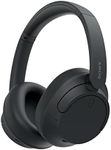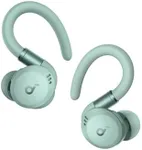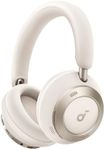Buying Guide for the Best Noise Cancelling Headphones
Choosing the right noise-cancelling headphones can make a big difference in your listening experience, whether you want to enjoy music, focus at work, or travel in peace. The key is to understand what features matter most for your lifestyle and how different specifications affect comfort, sound quality, and noise reduction. By learning about the main specs, you can confidently pick headphones that fit your needs and preferences.Active Noise Cancellation (ANC) TypeActive Noise Cancellation (ANC) is the technology that reduces unwanted background sounds by using microphones and special circuitry. This spec is important because it determines how well the headphones can block out noise in different environments, like airplanes, offices, or busy streets. Some headphones offer basic ANC, which is good for steady, low-frequency noises, while others have advanced or adaptive ANC that can adjust to different types of noise. If you need headphones mainly for travel or noisy places, look for stronger or adaptive ANC. For quieter environments, basic ANC may be enough.
Sound QualitySound quality refers to how clear, balanced, and rich the audio is when you listen to music, podcasts, or calls. This is important because good sound quality makes listening more enjoyable and less tiring. Headphones can range from having a neutral sound (good for all types of music) to having boosted bass or treble (which some people prefer for certain genres). If you care about hearing every detail in your music, look for headphones known for balanced or high-fidelity sound. If you like strong bass or a specific sound profile, choose accordingly.
Comfort and FitComfort and fit describe how the headphones feel on your head and ears, especially during long listening sessions. This is important because uncomfortable headphones can cause fatigue or pain. Headphones come in different styles, such as over-ear (covering the ears), on-ear (resting on the ears), and in-ear (earbuds). Over-ear models usually offer the best comfort and noise isolation for long use, while on-ear and in-ear are more portable. If you plan to wear headphones for hours, prioritize soft padding and adjustable headbands. For short use or travel, lighter and more compact designs may be better.
Battery LifeBattery life tells you how long the headphones can run on a single charge, especially when using noise cancellation. This is important if you travel often or use headphones for long periods without easy access to charging. Battery life can range from a few hours to over 30 hours. If you need headphones for long flights or workdays, look for longer battery life. For occasional or short-term use, shorter battery life may be sufficient.
Controls and ConnectivityControls and connectivity refer to how you interact with the headphones and how they connect to your devices. This is important for convenience and ease of use. Some headphones have touch controls, physical buttons, or voice assistants for managing music and calls. Connectivity options include Bluetooth (wireless), wired, or both. If you want freedom from cables, choose wireless models with stable Bluetooth. If you prefer a reliable connection or want to use them with older devices, look for headphones that also support wired use.
Portability and FoldabilityPortability and foldability describe how easy it is to carry and store the headphones. This is important if you travel or commute often. Some headphones fold flat or collapse into a smaller size, making them easier to pack. If you need headphones for travel or on-the-go use, look for models that are lightweight and foldable. For home or office use, portability may be less important.
Call Quality and MicrophoneCall quality and microphone performance matter if you plan to use your headphones for phone calls or video meetings. Good microphones pick up your voice clearly and reduce background noise. If you make frequent calls or join online meetings, look for headphones with high-quality microphones and noise reduction for calls. If you only use headphones for music, this may be less important.
